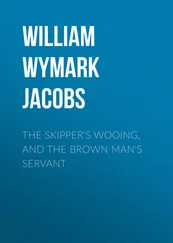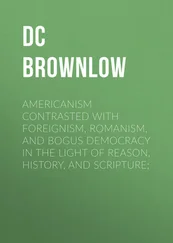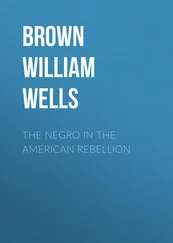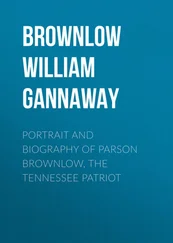William Brown - Stephen Arnold Douglas
Здесь есть возможность читать онлайн «William Brown - Stephen Arnold Douglas» — ознакомительный отрывок электронной книги совершенно бесплатно, а после прочтения отрывка купить полную версию. В некоторых случаях можно слушать аудио, скачать через торрент в формате fb2 и присутствует краткое содержание. Жанр: foreign_antique, foreign_prose, на английском языке. Описание произведения, (предисловие) а так же отзывы посетителей доступны на портале библиотеки ЛибКат.
- Название:Stephen Arnold Douglas
- Автор:
- Жанр:
- Год:неизвестен
- ISBN:нет данных
- Рейтинг книги:3 / 5. Голосов: 1
-
Избранное:Добавить в избранное
- Отзывы:
-
Ваша оценка:
- 60
- 1
- 2
- 3
- 4
- 5
Stephen Arnold Douglas: краткое содержание, описание и аннотация
Предлагаем к чтению аннотацию, описание, краткое содержание или предисловие (зависит от того, что написал сам автор книги «Stephen Arnold Douglas»). Если вы не нашли необходимую информацию о книге — напишите в комментариях, мы постараемся отыскать её.
Stephen Arnold Douglas — читать онлайн ознакомительный отрывок
Ниже представлен текст книги, разбитый по страницам. Система сохранения места последней прочитанной страницы, позволяет с удобством читать онлайн бесплатно книгу «Stephen Arnold Douglas», без необходимости каждый раз заново искать на чём Вы остановились. Поставьте закладку, и сможете в любой момент перейти на страницу, на которой закончили чтение.
Интервал:
Закладка:
He found no work at Jacksonville, and walked to Winchester, sixteen miles to the southwestward, where he hoped to get work as a teacher. The next morning, seeing a crowd assembled in the public square of the village, he pushed his way to the centre and learned that there was to be an auction of the wares of a merchant who had recently died. The auctioneer was in need of a clerk to keep the record of the sales, and the place was offered to the young stranger. He took it, served three days, earned six dollars, made acquaintance with the farmers gathered for the sale, and got a chance in the talk about politics to display those qualities which he never failed to display when opportunity offered – the utmost readiness in debate, good-natured courtesy, and keen political instinct. A school was arranged for him, and within a week he had forty pupils entered for three months. A lawyer of the place befriended him with the loan of some books, and he gave his evenings to law and politics. When the three months were ended, he went back to Jacksonville and opened an office. March 4, 1834, he was licensed to practice, and from that time he rose faster than any man in Illinois, if not in the whole country, notwithstanding that he rose on the lines along which many and many another young American was struggling toward prominence, and notwithstanding that Illinois was exceptionally full, as later years were to prove, of young men fitted for such careers as Douglas sought – notwithstanding, too, that there had already drifted to New Salem, in the very next county, a young Kentuckian destined to such eminence that the Illinois of those years is oftenest studied now for light on him, and is most amply revealed to us in the books about him.
But for the very reason that Douglas rose so fast it is not necessary, in order to understand how or why he rose, to study the conditions and men he had to deal with so carefully as they have done who seek to explain for us the slower progress of that strange career with which his is indissolubly associated. Jacksonville, which was to be his home for a few years, was a small country town, but it was the county seat of Morgan, one of the two wealthiest and most populous counties in the State. A few years earlier, that whole region had been a frontier, but the first roughness was now worn away. True, the whole northern half of Illinois was practically unsettled, and Chicago was but three years old, and not yet important. But it appears that the general character of the central counties was already fixed, and what followed was of the nature of growth rather than change. Certain small towns, like Springfield, were to become cities, and certain others, like New Salem, were to disappear. Railroads were not yet, though many were planning, and manufactures were chiefly of the domestic sort. But in the matter of the opportunities it presented to aspiring youth the country was already Western, and no longer wild Western. Hunting shirts and moccasins were disappearing. Knives in one's belt had gone out of fashion. The merely adventurous were passing beyond the Mississippi, and the field was open to the enterprising, the speculative, the ambitious.
Enterprise and speculation were in the air, and ambition, if it took a political turn, must perforce take account of them. The whole country was prosperous, and Illinois was possessed with the fever of development then epidemic throughout the West and the South. If one examines the legislation of any of the States west of the Alleghanies during the second administration of President Jackson, by far the most numerous category of bills will be found to deal with internal improvements, particularly railroads and canals. Money, however, was needed for these things, and Illinois, like all new countries, had to look backward to older communities for capital. President Jackson had but lately made his final assault upon the National Bank, the principal dispenser of capital, by the removal of the deposits, and public opinion was much divided on his course, when Douglas opened his law office and began to discuss public questions with his neighbors. While he still lived at Winchester, he had helped to get subscribers for a Democratic newspaper at Jacksonville, and he soon called upon the editor, who was first surprised at his visitor's youthful appearance and then, as he himself tells us, at "the strength of his mind, the development of his intellect, and his comprehensive knowledge of the political history of his country."
Boy as he looked, and boy as he was, for he had not yet passed his twenty-first birthday, Douglas actually got the leadership of the Jackson party in that neighborhood before he had lived there a month. An enthusiastic supporter of the President's policy on the bank question, he talked about the matter so well on Saturdays, when, according to the Western and Southern custom, the country people flocked into town, that he was put forward to move the Jackson resolutions at a mass meeting of Democrats which he and his friend, the editor, had contrived to bring about. There was a great crowd. Josiah Lamborn, an orator of some reputation, opposed the resolutions. Douglas replied in an hour's speech, discomfited Lamborn, and so swept his audience that they seized upon him and bore him on their shoulders out of the room and around the public square. He was the "Little Giant" from that day, and the speech became a Democratic tradition. Of course, in after years, the men who could say they heard it could not be expected to admit that he ever made a better speech in his life.
Within a year, he was so well known that he was chosen to the office of public prosecutor, or district attorney, of the first judicial circuit, the most important in Illinois, and his successful candidacy for the place is all the more remarkable because he was chosen by the legislature, and not by his neighbors of the circuit. Moreover, his competitor, John J. Hardin, was one of the foremost men of Illinois. It is true that Hardin was a Whig, and that by this time there was a pretty clear division between Whigs and Jackson men on offices as well as measures, so that the contest was a party as well as a personal affair; but from auctioneer's clerk to district attorney was a promotion hardly to be won in a year by a youth of qualities less than extraordinary.
The election was in February, 1835, and Douglas held the office the better part of two years. A justice of the supreme court had declared, on hearing of the legislature's choice, that the stripling could not fill the place because he was no lawyer and had no law books. Nevertheless, he was an efficient prosecutor. No record of his service is available, but there was a tradition in later years that not one of his indictments was quashed. Certainly, his work in the courts of the district increased his reputation and strengthened his hold on his own party. In the spring of 1836, the Democrats of Morgan held a convention to nominate candidates for the six seats in the house of representatives to which the county was entitled. This was a novel proceeding, for the system of conventions to nominate for office was not yet developed; the first of the national party conventions was held in preparation for the presidential campaign of 1832. Douglas was a leader in the movement, and as a result of it he himself was drawn into the contest. Morgan was a Whig county, but the solid front of the Democracy so alarmed the Whigs that they also abandoned the old plan of letting any number of candidates take the field and united upon a ticket with Hardin at its head. No man on the Democratic ticket was a match for Hardin. One of the candidates was withdrawn, therefore, and Douglas took his place, and he and Hardin canvassed the county together in a series of joint debates. Mainly through his championship, the convention plan was approved, and the Democrats won the election; but Hardin's vote was greater than the weakest Democrat's, and so the rivalry between him and Douglas was continued in the legislature, where they took their seats in December, 1836.
Читать дальшеИнтервал:
Закладка:
Похожие книги на «Stephen Arnold Douglas»
Представляем Вашему вниманию похожие книги на «Stephen Arnold Douglas» списком для выбора. Мы отобрали схожую по названию и смыслу литературу в надежде предоставить читателям больше вариантов отыскать новые, интересные, ещё непрочитанные произведения.
Обсуждение, отзывы о книге «Stephen Arnold Douglas» и просто собственные мнения читателей. Оставьте ваши комментарии, напишите, что Вы думаете о произведении, его смысле или главных героях. Укажите что конкретно понравилось, а что нет, и почему Вы так считаете.












